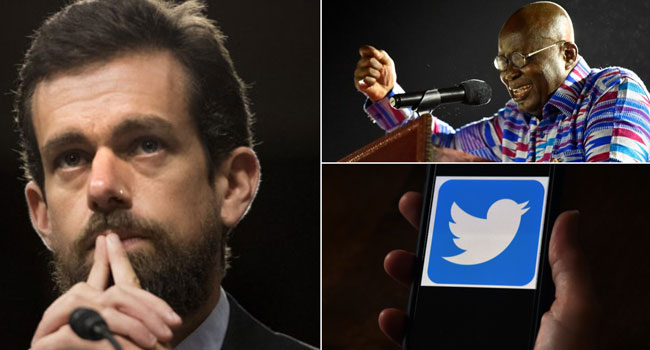The announcement by Social media giants Twitter, stating it is officially making Accra the headquarters of its operations in Africa, has stirred diverse reactions all over social media.
As part of its plan to fully enter into the African Tech Space, Twitter through its CEO, Jack Dorsey on Monday stated that it would be making Accra, Ghana’s capital its headquarters.
The announcement was very pleasant news to many Ghanaians with President Nana Akufo-Addo calling it “EXCELLENT news”.
He further stated that both the “government and Ghanaians welcome very much the announcement and the confidence reposed in the country.
“This is the start of a beautiful partnership between Twitter and Ghana, which is critical for the development of Ghana’s hugely important tech sector,” the president’s statement partly read on Twitter.
While the people of Ghana were celebrating the new development which many believe will help the nation’s economy by creating more jobs and opportunities for young people, there were some who weren’t so pleased.
Many Nigerians specifically were not really happy that Twitter chose Ghana instead of Nigeria. However, the grievance was not necessarily against the tech company nor against Ghanaians, but against the government and those at the helms of affairs in Nigeria.
Most Nigerians who reacted to the move argued that if all things were as they should be, then Nigeria’s population should be enticing enough to have Twitter make the country its African base.
They also faulted the government in respect of so many policies that make the nation rather unsuitable for investors such as Twitter. In particular they point at several reports suggesting that Nigeria’s parliament has from time to time deliberated on laws that tend to muffle the rights of individuals (mostly the rights to free speech).
Generally, critics have faulted Nigerian government on its consistent power generation and distribution failures which is not good for any business. For this singular reason many industries and companies have relocated to Ghana where power is more stable and affordable.
Mention has also been made of huge corruption in the system across the administrative, legislative and judicial arms of government. This kills the ‘paper’ due process and ease of doing business in the country.
The rising spate of kidnapping of both indigenes and expatriates, banditry, insurgency cultism and terrorism have equally combined to scare away foreign direct investors from Nigeria. Nobody wants to do business in an atmosphere of gross insecurity.
It is therefore obvious that the tottering giant of Africa cannot live up to continental leadership expectations due to it’s internal weaknesses.



